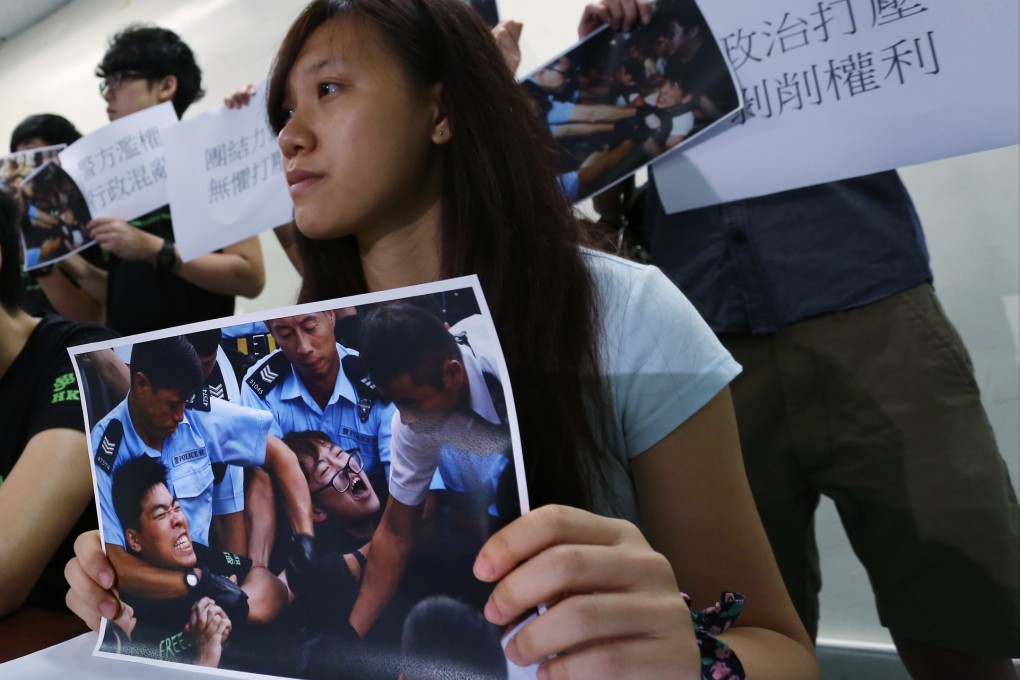Opinion | Rising political intolerance is threatening Hong Kong society
Peter Kammerer says the increasing intolerance in Hong Kong politics is dividing society and could cause long-term damage

Hong Kong has never been so intolerant. There have always been anti-gay voices; conservatism and the influence of religion-based schools and pressure groups like the Society for Truth and Light have made that inevitable. The rising tide of mainland tourists has, over the past few years, widened the narrow-mindedness. But the push against the supporters of democracy in general and the Occupy Central movement in particular is taking our city along a potentially destructive course.
The pro-Beijing Alliance for Peace and Democracy's anti-Occupy Central campaign is neither peaceful nor democratic. It's wilfully pitting Hong Kong people against one another purely because of their beliefs. A witch-hunt is under way to divide and silence pan-democrats, reminiscent of the vilification of communists in the West in the 1950s and 1960s. Hong Kong's then British colonial government deported hundreds of people from leftist trade unions and schools to the mainland for acts as simple as displaying the Chinese flag.
Matters at the time in the US were far more sinister, with senator Joseph McCarthy in the early 1950s whipping up a sense of terror against communists and accusing hundreds of people of being members of the American Communist Party. Jobs were lost and careers destroyed. The fear of communism led to wars, one cold, against the Soviet Union, and hot ones in Korea and Vietnam that had devastating consequences.
Hong Kong obviously doesn't face a war, but society is certainly being split and risks being torn apart. It's the classic "us" and "them" scenario, with Beijing and its backers on one side and those whose ideology looks to Western-style democracy on the other. If the course goes unchanged, those not in the Beijing camp will be sidelined, ignored and isolated. If matters get out of hand, as they well could, there will also be vilification and silencing.
I'm not prone to pessimism, but an event in North Point a few months ago eroded my faith that Hong Kong will have a harmonious future. One Saturday morning a few months ago, one side of the main street, King's Road, had been blocked for an anti-Falun Gong protest. The district is a stronghold of the Beijing-supporting Democratic Alliance for the Betterment and Progress of Hong Kong, so the big turnout for the demonstration wasn't unusual. I was shocked, though, at the tactics being used: young children, dressed in white to look like ghosts, were running among the protesters with banners and joining the chants against the religious group that is ostracised on the mainland. Brainwashing formative minds is one thing; instilling hatred in them against people because of their beliefs is quite another.
Exposing children to politics is nothing new, of course; the June 4 vigil in Victoria Park long ago became a family affair and students were as much part of the protests against patriotic education in 2012 as parents and teachers. But such events are about rights, not hatred. Nor is confrontation a trait of Chinese culture; compromise has always been favoured. Unless that returns to politics, Hong Kong risks a wave of intolerance that will tear society, and our future, apart.
